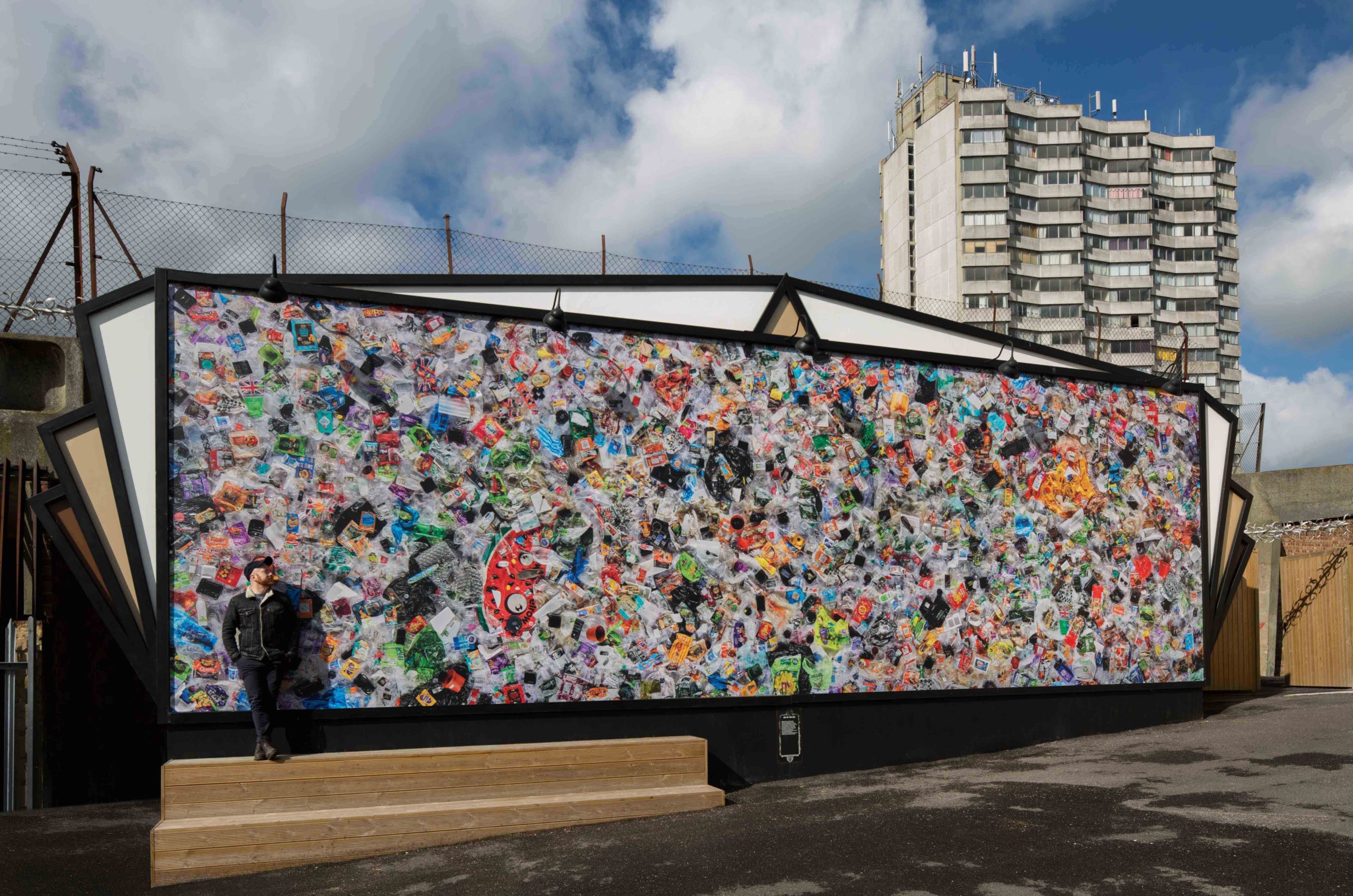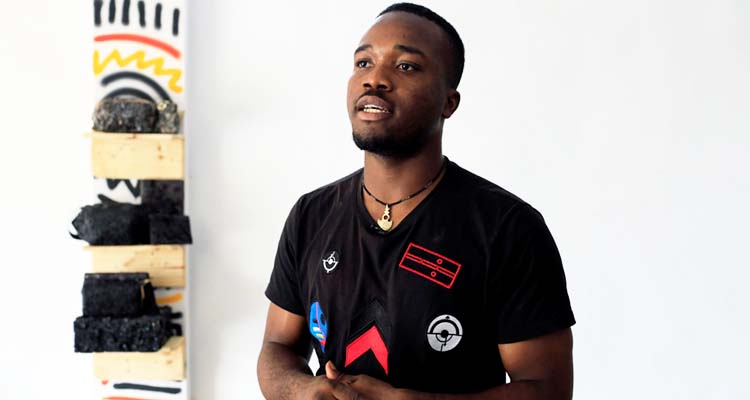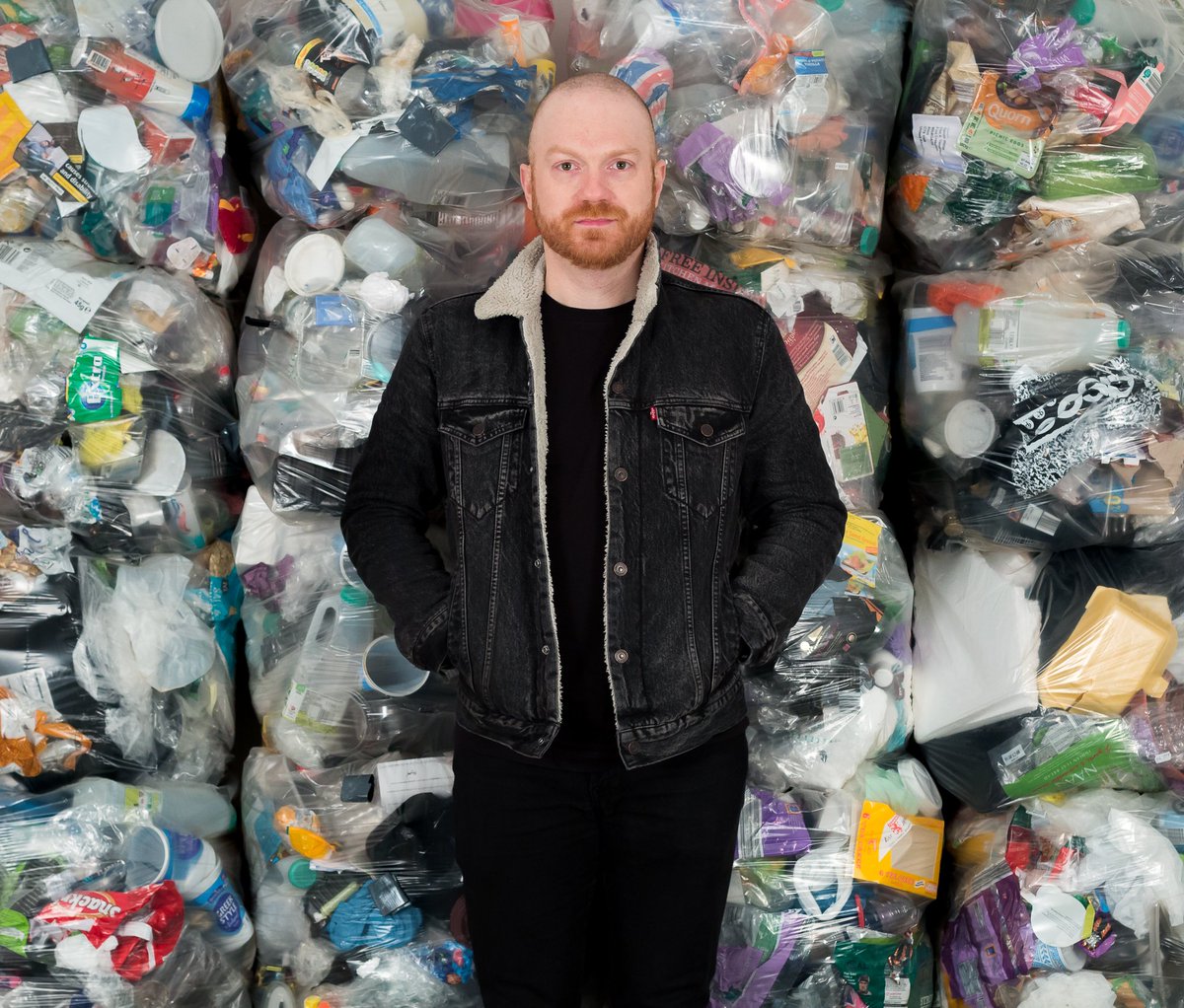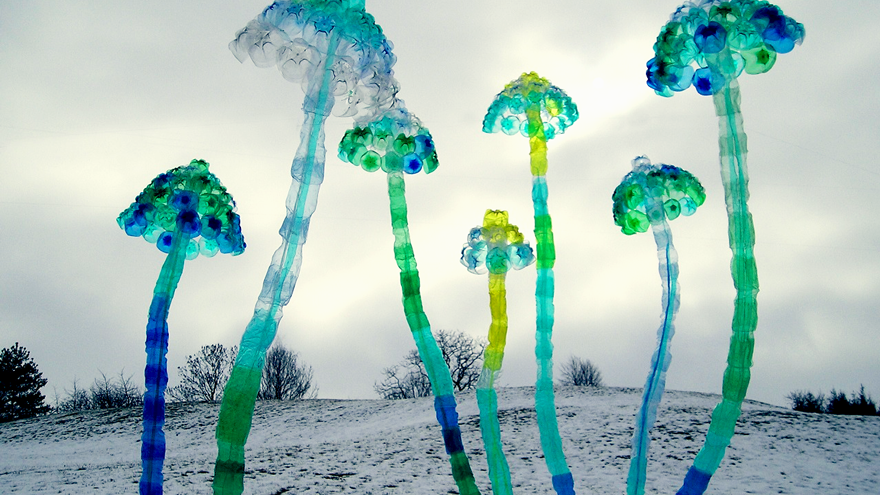Over 8.3 billion tons of plastic has been produced in the last 70 years, yet only 8% is recycled. Here are five activists putting excess plastic to good use.
Plastic pollution has increased at an exponential rate over the years, causing devastation for wildlife and ecosystems both on land and underwater, as well as impacting human health.
According to Greenpeace, since the 1950s over 8.3 billion tons of plastic — the weight of roughly a billion elephants — has been produced, yet only 8% of that has been recycled. Meanwhile, 12% is burned, and the remaining 79% generally ends up in landfills.
Plastic pollution specifically impacts marine life and people from low-income communities the most. People from low-income communities often live close to landfills, and it’s estimated that between 400,000 and a million people die every year from health issues connected to living near plastic pollution.
Over 700 million marine species have been impacted by plastic in the ocean. Once in the ocean, plastic can last up to 450 years and slowly breaks into smaller and smaller particles — known as “microplastics” that stay in the ocean permanently as well as entering food chains.
In response to the toll that plastic pollution has on the planet, at least 127 countries have banned plastic bags so far — 34 of these are African countries. When Kenya banned plastic bags in 2017 — launching the strictest single-use plastic ban in the world — it influenced neighbouring countries like Tanzania to implement the ban too.
Recycling has become a way of life globally and one of the most important ways to reduce plastic pollution. Seeing the need to reduce plastic waste globally, some artists have taken the matter into their own hands, reusing plastics and using their platforms to raise awareness about the issue of plastic pollution.
Here are five activists using creative and unconventional methods to transform plastic waste into art.
Nzambi Matee, Kenya
On Feb. 28, 2017, Kenya’s plastic bag ban officially came into effect — the world’s toughest single-use plastic ban.
Before the ban came into place, Kenya was using and discarding an estimated 24 million plastic bags every month; drainage systems would often get clogged up; and more than 50% of cattle in urban areas were found with plastic in their stomachs.
In 2018, Nzambi Matee and three other young Kenyans established a social enterprise called Gjenge Makers, which manufacturers bricks using discarded plastic. Before launching their enterprise, they would collect plastic waste, sort it, and sell to bigger recycling companies. Their plan soon changed and they started to collect it for themselves for their own projects.
They collect and shred the plastic, and combine it with sand to make environmentally friendly products, such as paving bricks and manhole covers. The products they produce are used by schools and to make paved footpaths all over Kenya.
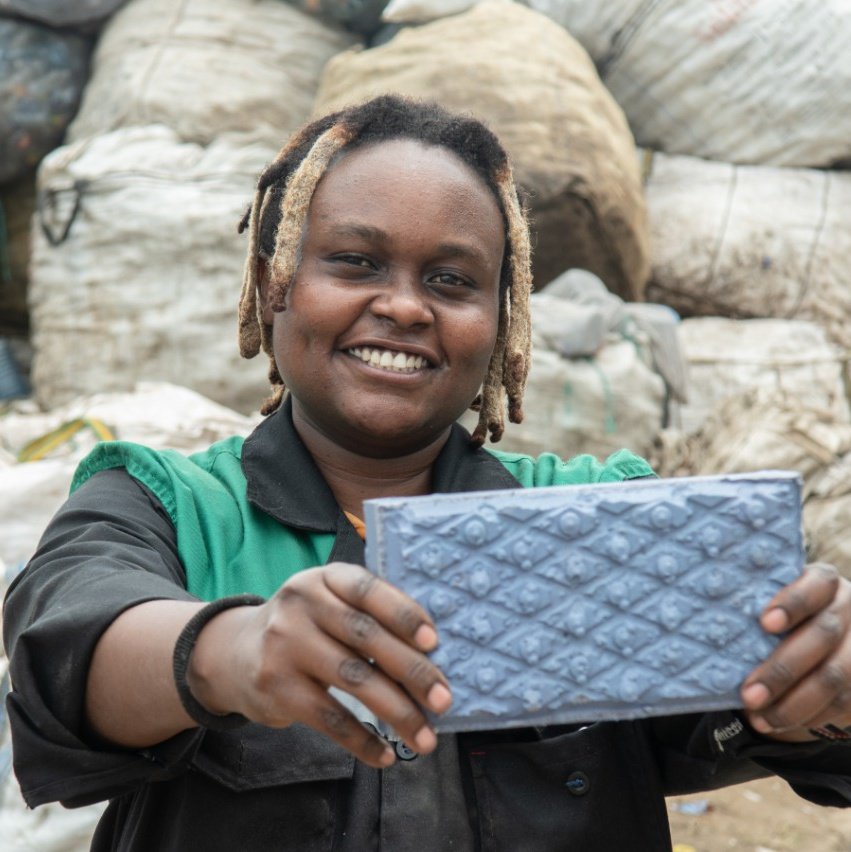
Adeyemi Emmanuel, Nigeria
Adeyimi Emmanuel is a Nigerian visual artist and environmentally conscious fashion designer, who describes himself as “an environmental artist busy creating life out of plastic.”
Emmanuel owns a line of bags called ECO, which are primarily made out of plastic waste. He has also branched out to make several art pieces using plastic bags and other recyclable products.
Lagos, where Emmanuel lives, has a huge plastic pollution problem and the plastic clogs the city’s streets and drains, and can often cause flooding when it rains. The amount of plastic waste in Lagos inspired him to want to raise awareness on the issue, and create art out of the discarded plastic.









